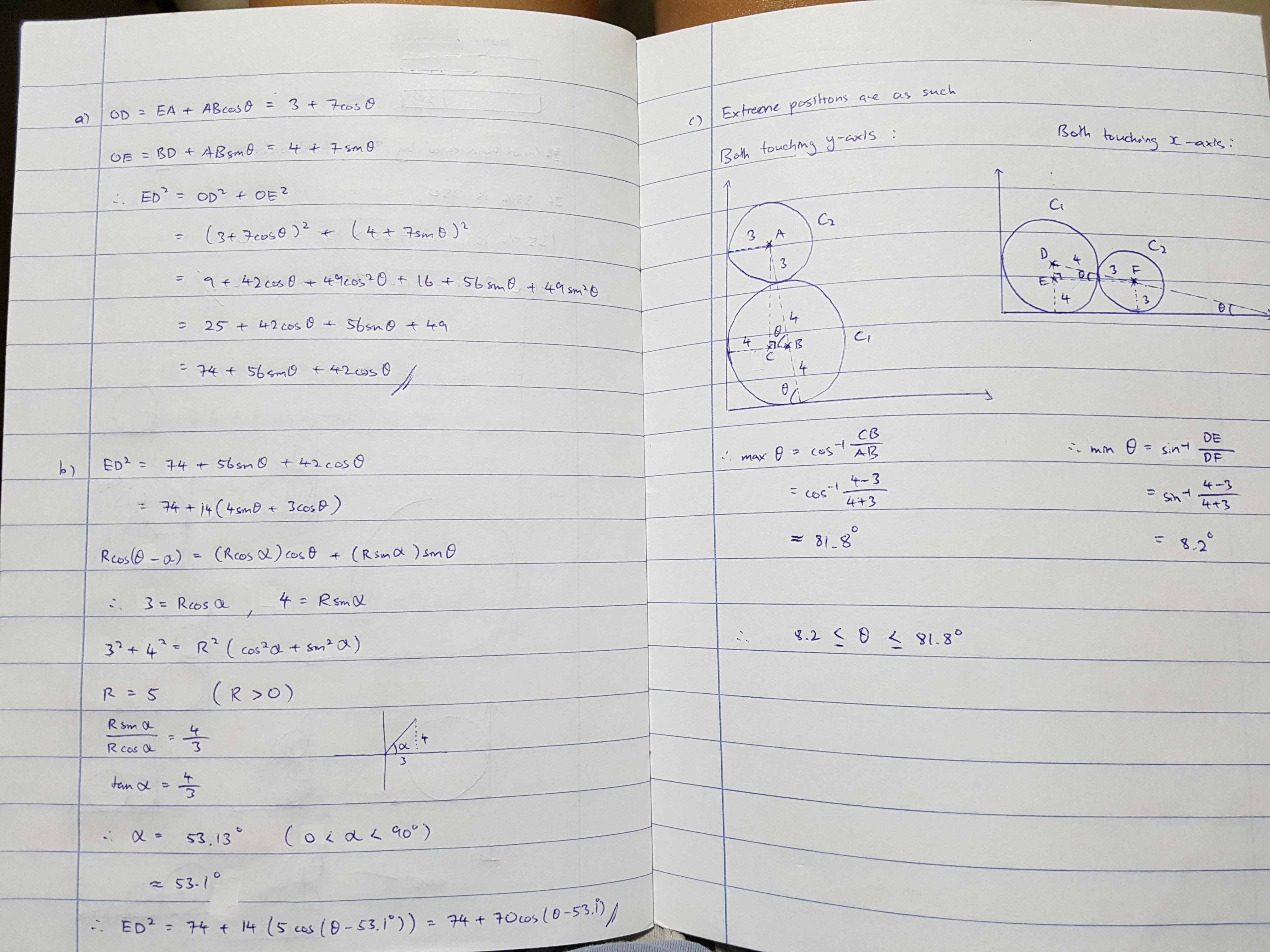Lim Han Quan's answer to Audris yeo's Secondary 4 A Maths question.
done
{{ upvoteCount }} Upvotes
clear
{{ downvoteCount * -1 }} Downvotes
For A) its a matter of using the pythagoras theorem to combine OD and OE.
For B) make use of the equation Rcos(x - a) = (Rcosa)cosx + (Rsina)sinx
Solve for R and A respectively
Anyway i'm guessing the tricky bit was C)? The question seemed pretty vague but im assuming the circles were as such (refer to the diagram I drew)
The 2 circles touching the x axis would form a minimum theta while the 2 circles touching the y axis would form the maximum theta
A little late but I hope this helps :)
For B) make use of the equation Rcos(x - a) = (Rcosa)cosx + (Rsina)sinx
Solve for R and A respectively
Anyway i'm guessing the tricky bit was C)? The question seemed pretty vague but im assuming the circles were as such (refer to the diagram I drew)
The 2 circles touching the x axis would form a minimum theta while the 2 circles touching the y axis would form the maximum theta
A little late but I hope this helps :)
Date Posted:
7 years ago


